Whichever business size you are operating, having a standardized way to issue receipts can streamline your operations and enhance your customer interactions. This blog will examine what a receipt template is, why they are vital for businesses, and provide some examples to get you started.
A Receipt template is a pre-designed document that people use to create and fill in receipts quickly and consistently. It includes essential details such as the transaction date, the names of the purchaser and seller, product descriptions, price, product quantity, and the payment method. Some template tools allow users to adjust and add additional information pertinent to their business, such as tax details, business logos, contact information, and terms of service.
Various tools allow users to create receipt templates, including word processors like Microsoft Word, spreadsheet software like Excel, or dedicated receipt-making software. They can be digital, or printable for physical copies.
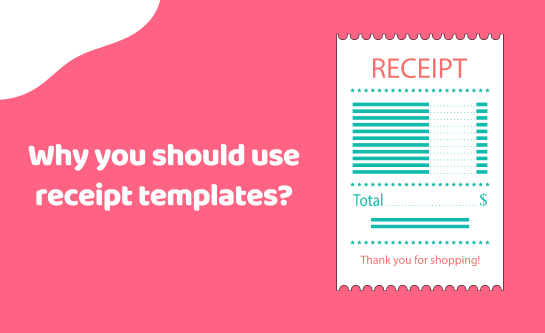
Using Receipt templates saves valuable time. Instead of creating a new receipt from scratch for each transaction, you can simply fill in the details in a designed template. This reduces the administrative burden on your staff and speeds up the transaction process, allowing you to serve more customers efficiently.
Consistency is key to maintaining a brand image. Receipt templates ensure that all receipts issued by your business have a uniform appearance and contain all necessary information. This consistency helps build trust with your customers, as they know what to expect every time they make a purchase.
Manual entry can lead to data correction errors, which can be costly and negative to your business reputation. Receipt templates minimize the risk of making mistakes by providing a structured format for entering information. This ensures that all required fields are filled correctly and that important details are not overlooked.
Effective record-keeping is essential for financial management and tax purposes. Receipt templates make it easy to maintain accurate records of all transactions. This is particularly useful during audits or when preparing financial statements, as you can easily access and review past receipts.
Providing detailed and professional receipts helps build trust with your customers. Receipts serve as proof of purchase and are often needed for returns, exchanges, or warranty claims. Clear and accurate receipts reassure customers that they are dealing with a reliable business.
Using receipt templates ensures that all your receipts have a consistent and professional appearance. This uniformity helps in building a reputable image for your business. Customers appreciate clear and well-organized receipts, reflecting your company’s professionalism.
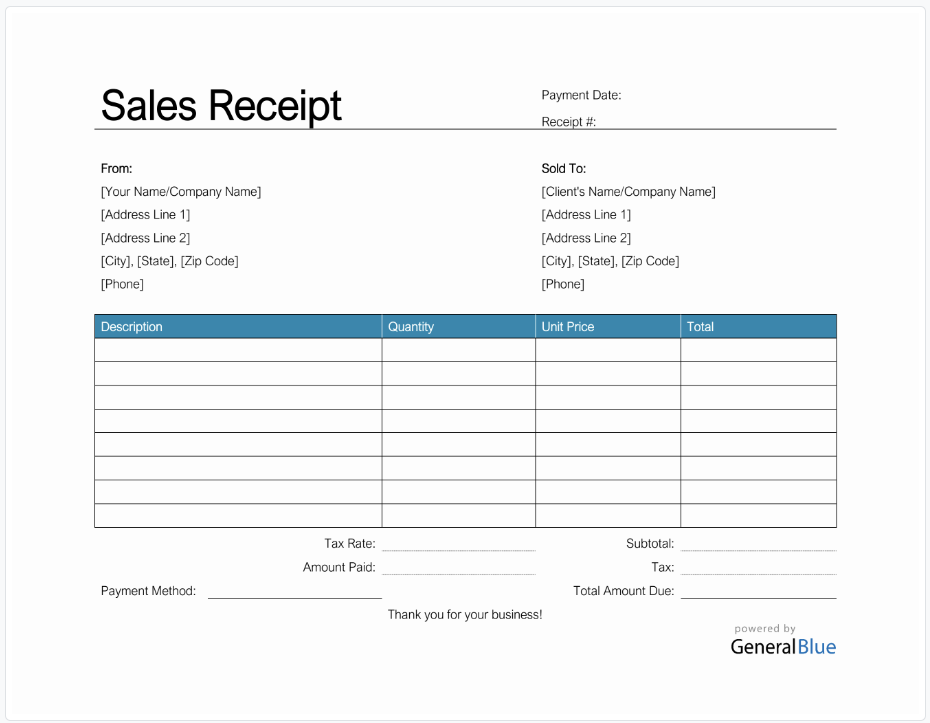
This is the simplest receipt template form, suitable for various types of businesses. It includes basic fields like date, item description, quantity, unit price, total amount, and payment method. This receipt template type typically is printed in mass amounts allowing retail stores, small businesses, and freelancers.
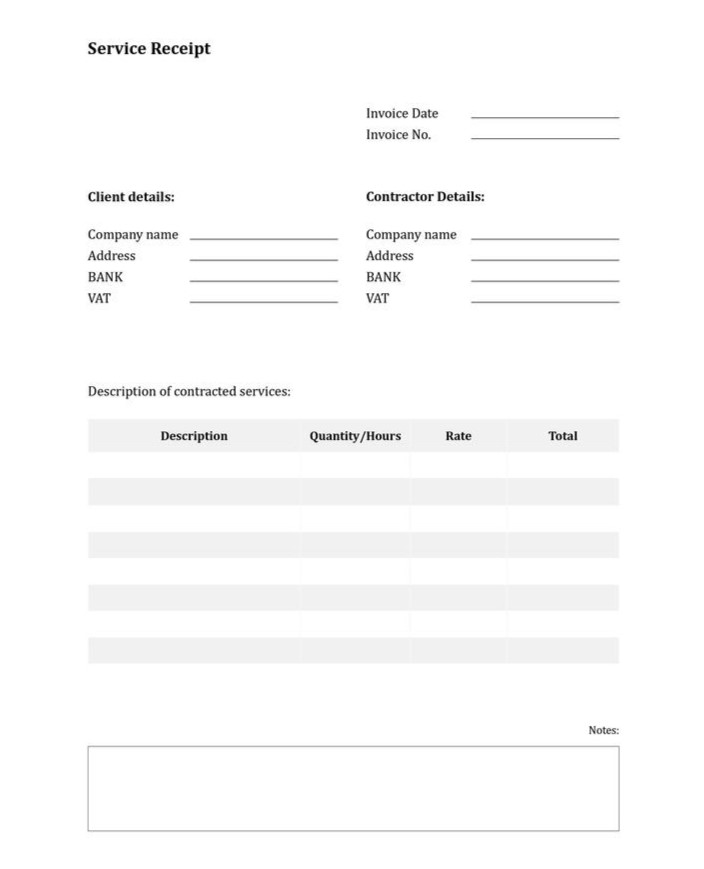
Designed for service-based businesses, this template typically includes fields for the date, service description, hours worked, rate per hour, total amount, and payment method. It is perfect for consultants, freelancers, and service providers like plumbers or electricians.
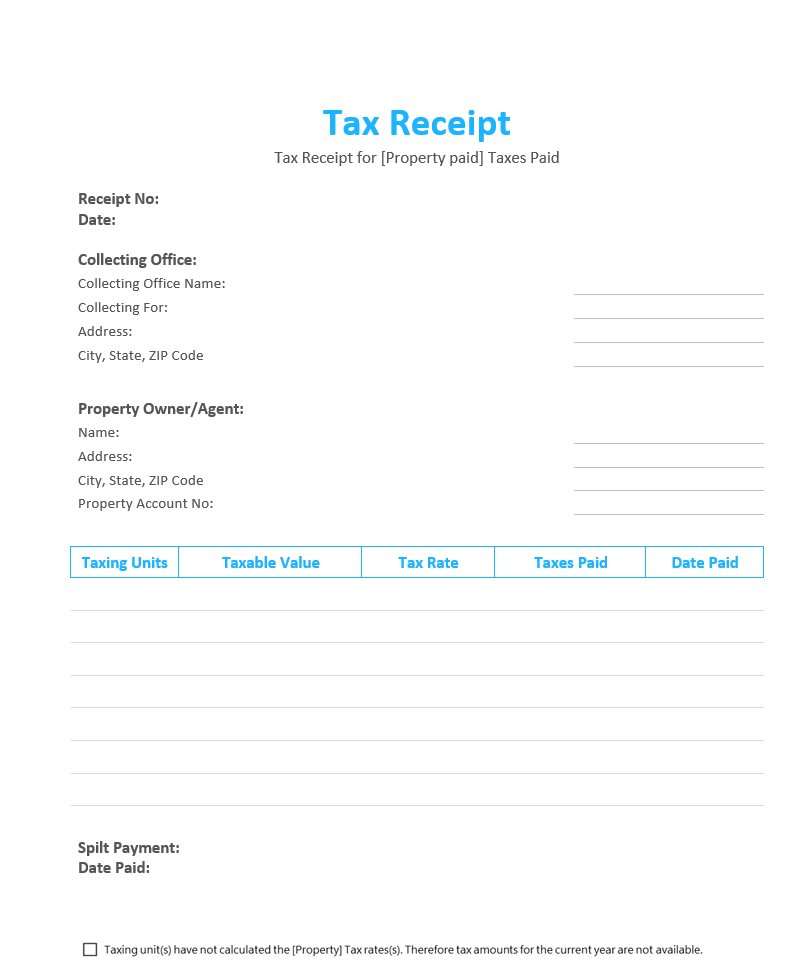
As its name, businesses use this template type to issue receipts with tax details. The tax receipt template commonly has the date, receipt number, item description, tax rate, tax amount, and date paid. It is suitable for businesses that need to provide detailed tax breakdowns on their receipts.
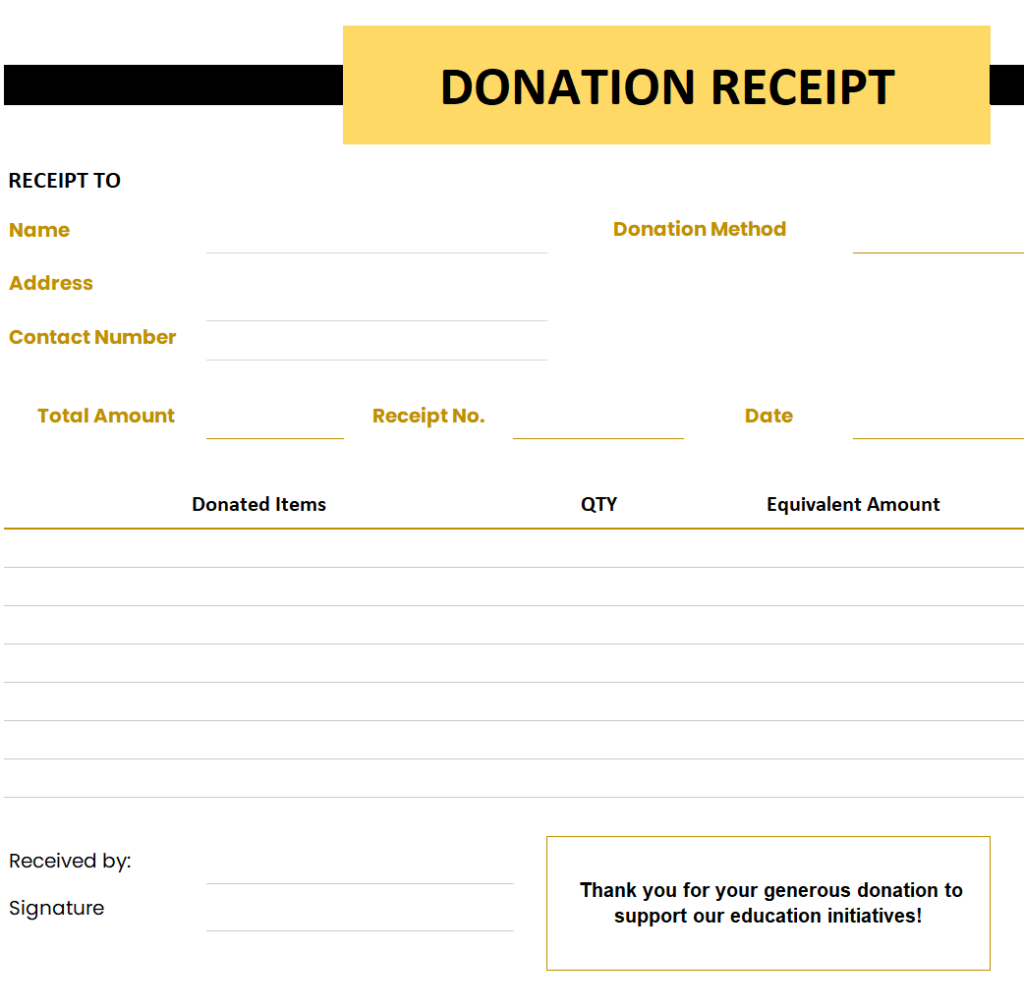
Charity organizations often use donation receipt templates to record and acknowledge the contributions of donors. Different from other commercial receipt types, donation receipts usually include thankful messages, donation receipt number, date received, receiver, and donor name. Most of the time, this receipt template is issued by NGOs in physical form, but with the expansion of the internet, large charity firms prefer issuing digital receipts due to the vast amount of donors and projects.

For businesses that are online-based, digitalization, e-commerce, or prefer to store electronic receipts, UpDiagram is an ideal tool to create your desired receipt form. You can freely set up and customize your receipt template’s elements thanks to UpDiagram’s adjustable features. For example, if you are a fashion brand, you can add the product size, and color, or attach images or product links for future review.
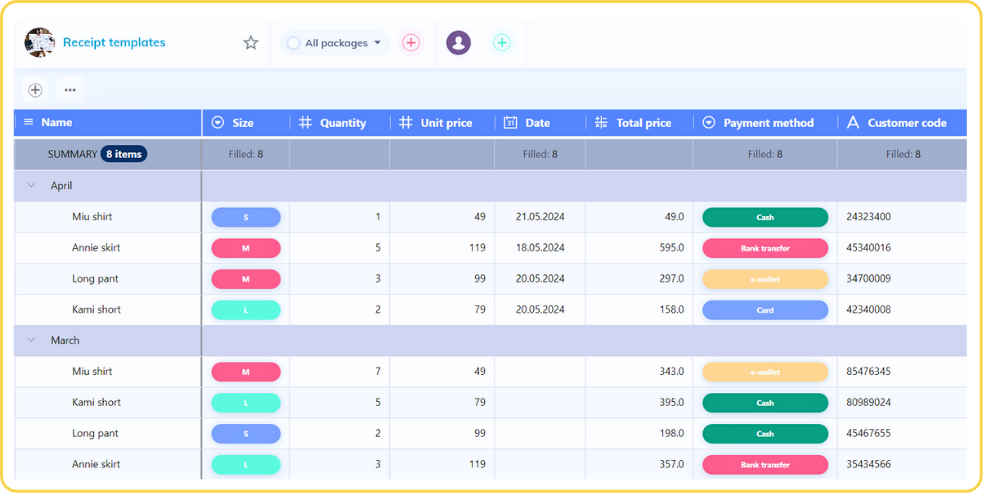
Click here to customize your receipt template
Furthermore, with receipt templates created on UpDiagram, brands can store transactional data and monitor sale performance through different visualizations and key performances on dashboard features. As a result, brands will have a clean and standardized receipt while enhancing professionalism, and reducing costs and time, and errors.
Implementing Receipt templates is a simple yet powerful way to streamline your business operations and improve your interactions with customers. As you move forward, consider how these customizable templates help your business start reaping the benefits today.